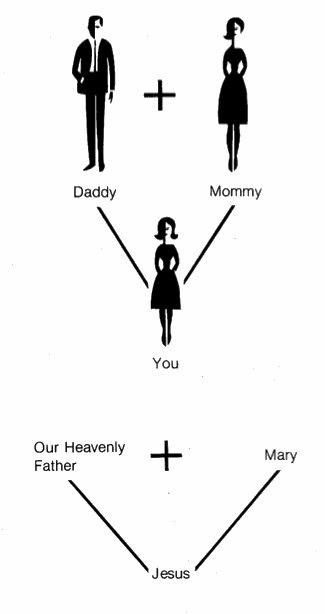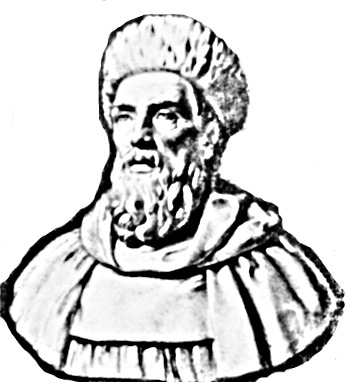podcast 158 – Listener Questions 3
An appealing theological option which is neither Nicene nor “Arian”?
An appealing theological option which is neither Nicene nor “Arian”?
As promised, I now hope to run (walk, crawl?) through the gamut of theories of the Trinity propounded by recent analytic philosophers. My aim is to bring these articles to a wider audience, so I’ll try to write clearly, and focus on the what I think is important about the piece. I’ll try to omit needless details, and summarize or skip arguments that would throw… Read More »Transition, Theories
In my comments on his first salvo, I wondered exactly what Trinity doctrine Bowman means to defend. (Some kind of modalism?) After round two, I said that Bowman has owned up to affirming a contradiction – trying to pass it off as a “mystery”, i.e. a merely apparent contradiction. In round 3, Bowman ignores these fundamental conceptual difficulties for his position, and soldiers on with… Read More »SCORING THE BURKE – BOWMAN DEBATE – Bowman 3
“For all its complexity, the biblical doctrine of the Trinity can be stated in seven simple propositions.”
According to the Arizona Daily Star, ‘Lord’ is fading at some churches, because they think it smacks of patriarchy.
When ideology has taken over to the point that you think it’s inappropriate to describe God almighty in terms that connote power (horrors!)… wow.
And then, what about Jesus?Read More »“Lord” allergies among “mainliners”
Many are moving from a trinitarian understanding to a unitarian understanding of Christian theology. But not all of their reasons are good reasons…
Since 2002, Dr. Brian Leftow has been the Nolloth Professor of the Philosophy of the Christian Religion at Oriel College, Oxford University. He taught for many years at Fordham University in New York City before moving to Oxford. Dr. Leftow has written over 90 professional articles and book chapters on metaphysics, medieval philosophy, and philosophical theology.

Last time, I explained that Athanasius thinks human fathers procreate sons by giving a part of their substance to the mother, and that bit of substance then becomes an ingredient in the zygote, and the zygote inherits its human nature from that ingredient.
Athanasius thinks this basic model applies to God too, though he is careful to make an important qualification: human fathers beget sons by giving up a part of their substance, but God the Father gives his whole self to his Son, not a part.
Read More »Arius and Athanasius, part 8 – Athanasius on begetting the Son (JT)

“If I think of pork-products, is that a self-conscious act of thinking?”
What follows is the first of a two part post.
Part 1: The Divine Word as Divine Practical Knowledge
Part 2: If God Weren’t a Trinity, then Creatures Would Necessarily Be Created.
Part 1
In pre-Nicene days (and post-Nicene days) there was much debate about the ontological status and (narrative) identity of the Son of God. One branch of discussion focused on the Apostle John’s claim that the Son of God is the Word of God. In various places in the New Testament the Son of God is identified as the agent through whom the Father creates the world, which is equivalent with saying the Word of the Father and the Father create creatures.
From these sources a ‘Logos-theology’ was born (that you can read about in the history books). The Logos is that by which creatures are created, have their existence and persistence in existing.
Now, Henry takes up the question as to whether the Word is ‘practical knowledge’. Henry generally gets his definitions of kinds of knowledge from Aristotle. From Aristotle we learn about three kinds of knowledge: speculative knowledge, practical knowledge and productive knowledge.
Review of a learned and insightful yet deeply flawed book.
Man, if I don’t love youtube. Never thought you’d here the words “modalistic monarchianism” in a rap?
Yo. Check it out this rap “Godhead” by Flame. Comes with bonus sermon excerpts.
My favorite rhyme, from verse 3: “Pentecostalism” with “cost of living”. That was a hard one! Well played. 🙂 Second best: “Sabellius” with “belly is”. (Verse 2) He really should’ve worked in “Nestorianism” towards the end of verse 3, but I guess that would tax the rhyming skills of Snoop Dog himself.
The concern here is to refute “Oneness” folk. Take that, Winterband!!! Indeed – Sabellius was trippin.
After the break, the lyrics in all their glory, as posted on the youtube page, with the best bits bolded by me.
Read More »Refutation of “Oneness” Theology in Rap Form (Dale)
Last time we looked at Daniel Howard-Snyder’s published attack on Moreland’s and Craig’s Trinity theory they call “Trinity Monotheism“. Bill Craig, never one to duck a fight, fired back. (“Trinity Monotheism Once More,” Philosophia Christi 8:1, 2006, 101-13) First, he complains that Dan “fusses terribly over the analogies” they use (e.g. a human, Ceberus) while not saying much about the actual proposal. This is a… Read More »Trinity Monotheism part 7: Bill fires back, part 1
Trinitarian theologies are a major barrier to Muslims accepting Christianity. In this episode we hear how Mr. Qureshi changed his view that the Trinity is a patently ridiculous doctrine.
 Philosopher Graham Priest is notorious for his claim that there are true contradictions. I have to confess that when I first heard this years ago, I thought the people telling me were pulling my leg. But, they were not. Priest is deadly serious, and has developed paraconsistent logics – logical systems which allow some true contradictions. And he’s vigorously defended his claims against all comers, as in this recent book.
Philosopher Graham Priest is notorious for his claim that there are true contradictions. I have to confess that when I first heard this years ago, I thought the people telling me were pulling my leg. But, they were not. Priest is deadly serious, and has developed paraconsistent logics – logical systems which allow some true contradictions. And he’s vigorously defended his claims against all comers, as in this recent book.
No, he doesn’t say that all contradictions are true – only some of them. And the ones which are true are also false. He claims that this thesis of dialetheism solves the liar paradox and others.
Very rarely, some theologian will come along, and assert that the Trinity doctrine is a true contradiction – not a merely apparent contradiction, but a real one.
Most Christians, though, eschew such a claim. Mysterian James Anderson discusses and rejects this approach to Christian mysteries in his book Paradox in Christian Theology.
Much to my surprise, I recently found a move like Priest’s in Gregory of Nazianzus (d. c. 390), in his Third Theological Oration.
Gregory is considering an argument by Arians, a premise of which is that the Son who the Father begot either was or was not in existence – I take it, prior or “prior” to his being begotten. (It is clear at the end of this section that Gregory takes them to mean literally before.)
Gregory asserts that this claim “contains an absurdity, and not a difficulty to answer.” He then gives a non-too-clear time example, which I’ll skip. Then he argues,
…in regard to this expression, “I am now telling a lie,” admit one of these alternatives, either that it is true, or that it is a falsehood, without qualification (for we cannot admit that it is both). But this cannot be. For necessarily he either is lying, and so is telling the truth, or else he is telling the truth, and so is lying. What wonder is it then that, as in this case [of the liar paradox] contraries are true, so in that case [concerning the Arians’ premise above] they [i.e. both alternatives] should both be untrue, and so your clever puzzle prove mere foolishness?
I take it that the “contraries” he mentions would be: “the man is lying” and “the man is telling the truth”. Contraries are often defined nowadays – I’m not sure how they were defined in his day – as claims that can’t both be true. But here, Gregory asserts that both are trueRead More »Gregory of Nazianzus – an early dialetheist? (Dale)

Last time we highlighted one problem with Resolution through Rational Reinterpretation – often, only a metaphysician could love the new-fangled (but precise and seemingly consistent) version of the Doctrine in question. A second concern is that many believers think this “new version of” the Doctrine just ain’t that doctrine at all, but a knock-off – something similar, but different, and moreover, not genuine.
Consider these pronouncements of the First Vatican Council of 1869-70:
…that meaning of the sacred dogmas is ever to be maintained which has once been declared by holy mother church, and there must never be any abandonment of this sense under the pretext or in the name of a more profound understanding.Read More »Dealing with Apparent Contradictions: Part 9 – Rational Reinterpretation, cont.

In his comment on my previous post, Brandon points out that he doesn’t assert the case described there to be a counterexample. Rather, he was wondering why it isn’t a counterexample; he was probing to see my response.
Fair enough. I’ve left the title of the post as is just for continuity with part 1.
The case Brandon described, was an omniscient God, who is both subject and object of knowledge of himself. God as knower is subject of knowledge but not object. But God as object is what is known, and not the subject of knowledge. So, don’t we here have something which is and isn’t intrinsically some way (being self-knowing) at a time? If so, the principle is false.
My response is that there Read More »On an alleged counterexample to Leibniz’s Law – Part 2 (Dale)
My posting has been infrequent lately. That’s because I’ve been working on an old paper of mine which isn’t on philosophical theology. But it’s also because I’ve been working on a couple of very exciting blog-related things behind the scenes – stay tuned.
My recent exchange with Brandon Watson got me to thinking. This is going to be boringly methodological, but I need to think about this issue, as it’ll come up again and again. As a philosopher, I’m interested in evaluating theories on their merits – consistency, fit with the evidence, coherence with what else we believe, explanatory power, and so on. When I look at the history of theological debate, it is very often marred with the ugly weapons of rhetoric Read More »Some thoughts on labeling others’ theories
The most controversial word up to that date in Christian theology was the Greek homoousios, enshrined at the Nicea council called and presided over by the first Christian (?) Roman emperor, Constantine, in the year 325. This council said that we must confess that the Son is homoousion with the Father. What did it mean? Same ousia. Does that clear it up? OK, here’s more:… Read More »“One in Being” out, “Consubstantial” (back) in

“Stand aside, puny moderns. Or postmoderns. Or whatever you are.”
I thought that Scott and Joseph made some really penetrating comments on the first two posts in this series. Here I want to recap them, so we can discuss how Henry of Ghent (c. 1217-93) a.k.a. The Solemn Doctor would interpret our chart (see the first two posts), specifically, the second, modalistic interpretation I offered.
First, Joseph comes in with some weighty objections to that model (summarized and expanded by me from his comments).Read More »The Latin Trinity Chart 3 – Henry of Ghent to the rescue